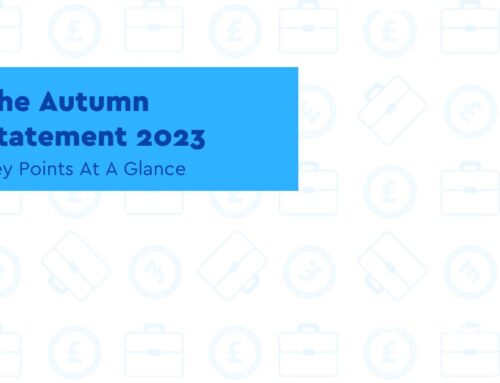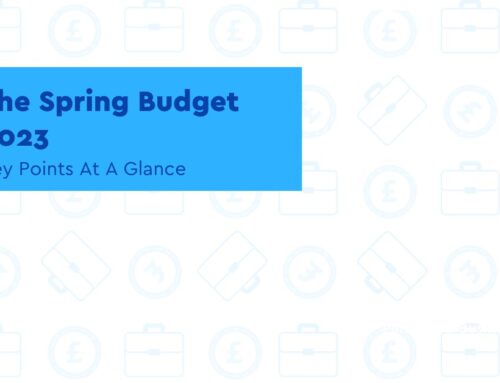News – Business Support
Energy plan: Six month scheme for business announced
Key Points
- The plan for businesses will include a review to identify the sectors that will need more long term support
- The guarantee on energy costs will be funded by increased borrowing
- It will involve businesses having their energy costs capped at the same price per unit as households
Prime Minister Liz Truss last week confirmed that domestic energy bills will be frozen at around £2,500 as part of a package to ease the cost-of-living crisis – a move set to cost an estimated £150bn.
Ms Truss also promised equivalent support for businesses for six months, with a review to identify the sectors that will need more long term support. Companies, venues and industry groups are now waiting for more detail on the scheme – which could be provided by Mr Kwarteng.
As businesses have not benefited from an energy price cap and are not always able to fix their energy price through fixed deals, many are reporting projected increases in energy costs of more than 500%.
However, the government is unlikely to release details about the support plan for businesses to help with energy bills before November
The latest reports indicate that officials at the Department for Business (BEIS) and the Treasury are working on proposals at the moment but the complexities of the programme mean that the details of how the support will work will not be available immediately. Despite the delay, the BBC has reported that any package will be backdated to October, which will provide some relief for businesses although many thousands are due to sign annual yearly contracts which fix prices from October.
It was reported a new six-month scheme for businesses and other non-domestic energy users (including charities and public sector organisations like schools) will offer equivalent support as is being provided for consumers. This will protect them from soaring energy costs and provide them with the certainty they need to plan their business.
After this initial six-month scheme, the Government will provide ongoing, focused support for vulnerable industries. There will be a review in 3 months’ time to consider where this should be targeted to make sure those most in need get support.
The Government will provide energy suppliers with the difference between this new lower price, and what energy retailers would charge their customers were this not in place.
Schemes previously funded by green levies will also continue to be funded by the Government during this two year period to ensure the UK’s investment in home-grown, secure renewable technologies continues.
The guarantee on energy costs, which is aimed at saving families and businesses from financial ruin if bills continue to rise as predicted, will be funded by increased borrowing after Ms Truss rejected calls for a windfall tax on oil and gas producers.
It will involve businesses having their energy costs capped at the same price per unit – or kilowatt hour (kWh) – that households will pay under the government’s new plans.
The government has been lobbied by business groups to force energy providers to offer specific reductions on the unit price of the energy used by firms.
That is a move that had been supported by the Federation of Small Businesses. National chair Martin McTague said: ‘Constricting the scale of energy bills for small businesses is unprecedented; we now have a high level commitment in principle to help businesses get through the winter intact. Done right, this will be a lifeline – protecting jobs, communities and future economic recovery.
This article was sourced from gov.uk: https://www.gov.uk/government/news/government-announces-energy-price-guarantee-for-families-and-businesses-while-urgently-taking-action-to-reform-broken-energy-market
News – MTD
HMRC update their guidance on MTD ITSA
Key Points
- The updated guidance includes clarification on who needs to sign up for MTD and when
- Plus, there is also information on who can sign up voluntarily in advance of mandation as part of the pilot
Further details have recently been published by HMRC on the forthcoming Making Tax Digital for Income Tax regime.
HMRC updated four pieces of guidance on their plans to introduce Making Tax Digital (MTD) for certain taxpayers within the Income Tax Self-Assessment regime (ITSA) from April 2024.
The updated guidance includes clarification on who needs to sign up for MTD and when, plus there is also information on who can sign up voluntarily in advance of mandation as part of the pilot.
Check if you can sign up for Making Tax Digital for Income Tax
This page provides guidance on who will be within the scope of the new rules, which includes individuals registered for Self-Assessment with total annual income from self-employment and/or property income of £10,000.
Non-domiciled individuals do not need to include their foreign income in the threshold calculation or follow the MTD requirements for that foreign income. There is also confirmation that income from a partnership is not included (partnerships themselves will fall within the MTD rules from a later date) unless the income is in the form of disguised investment management fees or income based carried interest, an important point for the Private Equity sector.
Check when to sign up for Making Tax Digital for Income Tax
Information has been added to this page to check if you meet the Making Tax Digital for Income Tax requirements by April 6, 2024 and what steps will happen before then.
There is also further confirmation that general partnerships which only have individuals as partners do not need to comply with the requirements until April 2025, but the commencement date for other types of partnership is still to be determined.
Sign up as an individual for Making Tax Digital for Income Tax
This page explains how individuals who wish to sign themselves up for MTD would go about doing so but it also provides guidance on which taxpayers can sign up for the pilot in advance of mandation.
Using Making Tax Digital for Income Tax
This page is a more general overview of how the reporting rules will apply in practice, rather than the sign up process. It includes how to meet the requirements, especially if you have more than one business. HMRC also acknowledges here that businesses are required to use standard quarterly period dates (i.e. ending on July 5, October, January and April) but at a later date, there will be the option to choose to use calendar quarters.
Speak with us for help with MTD
News – Budget
Government confirms plan for ‘mini budget’ in September
Key Points
- The fiscal statement will fall short of a full budget
- It will give the new Prime Minister and Chancellor the opportunity to lay out plans to tackle the cost of living crisis
UK Chancellor Kwasi Kwarteng is expected to deliver a mini Budget on September 23.
The so-called ‘fiscal event’ will see Mr Kwarteng announce more information about the energy cap that was announced last week by Prime Minister Liz Truss.
The Chancellor is also set to give more details about tax cuts, including reversing April’s increase in national insurance.
While the initial announcement has been delayed due to the 10-day period of mourning following the death of Queen Elizabeth II, the government stated this week that the ‘mini budget’ or so-called ‘fiscal event’ was still likely to take place.
Prime Minister Lizz Truss, who will be in the US next week attending the UN General Assembly, agreed to push back the date of the “fiscal event” by a day to accommodate her travel plans.
Kwarteng is also expected to reverse plans to increase corporation tax from 19 per cent to 25 per cent in April.
The Chancellor will herald a post-Brexit deregulatory push and wants to scrap the EU bankers’ bonus cap, which was introduced in 2014.
The fiscal statement will fall short of a full budget but will give Prime Minister Liz Truss and new Chancellor Kwasi Kwarteng the opportunity to lay out the government’s plans for a series of major interventions to tackle the cost of living crisis and counter the threat of rising energy bills.
The new PM has vowed to cut taxes to boost the economy and help people with rising living costs, while the government could also give details on the cost of last week’s energy plan.
The government has not given an estimated cost for its plan, unveiled last week, to limit energy price rises, meaning a typical household energy bill would cost around £2,500 annually until 2024.
The plan, announced just hours before news of the Queen’s death, could cost up to £150bn.
As part of the ‘event’, the Financial Times (FT) reported this week that Kwarteng had told the Treasury to focus “entirely on growth” and to “adapt to a new approach focused on boosting annual economic growth to 2.5 per cent”.
The FT went on to state that tax cuts would “be at the heart of the new government’s ‘fiscal event’”.
During the leadership campaign, Ms Truss promised to undo the rise in National Insurance under her predecessor Boris Johnson.
She has put the reversal at the centre of a “bold” package of tax cuts that she says are required to boost the UK economy and stop a recession.
She has also argued the cuts will help households, at a time when living costs are rising because of 40-year-high inflation.
In addition, she has also said she will use the mini Budget to temporarily scrap green levies on energy bills, in a bid to bring down prices for consumers.
News – Budget
Variable direct debits for PAYE
Key Points
- The current system allows only a single payment to be made by direct debit
- There will be changes to the business tax account and the employers’ liabilities and payments screens
The August 2022 issue of HMRC’s Employer Bulletin announced that a variable payment plan for PAYE and NIC liabilities would be introduced from September 19, 2022.
The current system allows only a single payment to be made by direct debit.
The service can be accessed through Pay employers’ PAYE or directly through the business tax account and the employers PAYE service.
HMRC has confirmed that the direct debit amount will be the figure declared on returns submitted by employers, or a lesser figure if any overpayments have been allocated to reduce the original declaration. The direct debit will never be greater than the value declared on the return and can never be more than £20m, in accordance with direct debit BACS rules.
Secondly, the money will be drawn on the 23rd of each month, or the next bank working day. The employer will receive an advance notice three days in advance of every collection date, to ensure they are notified of the amount being collected. There will be no additional interest charged to employers who choose to pay by variable direct debit payment plan, provided that their direct debit payment does not dishonour for whatever reason, (ie, insufficient funds, bank account closed, etc.).
There will be changes to the business tax account and the employers’ liabilities and payments screens on the employers PAYE service. A new link ‘Set up a Direct Debit’ will be introduced and this will allow customers to set up a Direct Debit instruction, authorising HMRC to collect direct from their bank account based on their return submissions.
Following set up, the link will change to ‘Manage your Direct Debit’ and an employer will be able to view, change or cancel the Direct Debit online.
As this is a new service, employers may wish to monitor it carefully and check the notifications. The facility to create, view, amend and cancel a Direct Debit is restricted to employers only.
Economy grows by 0.2% in July
A report from the Office of National Statistics (ONS) estimates that gross domestic product (GDP) grew by 0.2% in July 2022.
This follows a decline in June, which saw the economy shrink by 0.6%.
While 1.1% above pre-pandemic levels, GDP still remains below the level seen in May, with soaring inflation contributing to the slow recovery. Compared to the previous three months, GDP was flat in the three months to July.
The main driver of growth was the services sector, with an increase of 0.4% boosted by the Women’s Euros and Commonwealth Games. The largest contribution to the sector came from information and communication, which grew by 1.5%. Production fell by 0.3% and construction was down by 0.8%, largely affected by rising energy costs and an increase in the costs of materials.
Output in consumer-facing services increased by 0.6% in July but still remains 4.3% below pre-pandemic levels.
Kitty Ussher, chief economist at the Institute of Directors, said:
‘Businesses will be reassured to hear that the economy grew in July, at around its long-term trend rate. When looking at the last three months together, it shows the economy flatlining as the impact of higher inflation works its way through the system.’
Additional rises needed, declares Bank of England ratesetter
The Bank of England must not be ‘complacent’ in the fight against rising inflation, a member of the Bank’s rate- setting monetary policy committee has warned.
Catherine Mann said more interest rate rises were needed to convince people that price growth would move back to the Bank’s target.
In a speech at the University of Kent, Mann said some measures of household and business inflation expectations risked rising out of the control of the Bank, complicating her and others’ role as ratesetters to return inflation to its 2 per cent annual target.
In addition to soaring energy costs, she has argued that the weak pound is helping to generate inflationary pressures and that the Bank would be better off raising rates quickly now and giving itself room to ease policy if an economic crisis were to unfold.
Last month the Bank raised interest rates by its highest margin since 1995 at 50 basis points. Money markets are penciling in another such rise in September as inflation has reached double digits and could peak at 20 per cent in spring next year, according to some forecasters.
Get In Touch
At Morgan Reach, we understand every business needs a little help now and again-especially when it comes to the financial side of things. Therefore, to help our clients and visitors we endeavour to cover as much of the business news as possible. If you are self-employed or run a business and need assistance and advice on how these news could make a difference to you or your business, feel free to get in touch with the experts at Morgan Reach. Our business growth experts at Morgan Reach will guide you through what support is available for you or your business as well as the latest news that may affect you.







